6 Poker Playing Hacks From the Pros
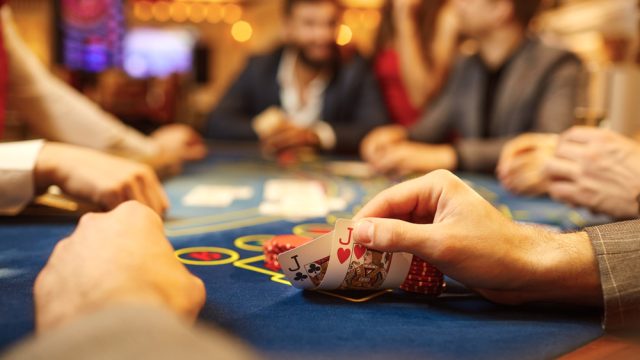
Whether you’re playing with friends at home or living it up at a casino on a trip, there’s nothing like the thrill that can come from a few hands of poker. Thanks to its subtle social elements and personalized play styles, it stands out from other games as one that can be strategized and perfected in an entirely unique way. Fortunately, it’s never too late to get a leg up on other players with a few tips and tricks. Read on for some of the best poker playing hacks from pros that will seriously improve your game.
READ THIS NEXT: The 10 Best Casinos in the U.S. If You Love to Gamble.
1
There’s one popular playing tactic you may want to avoid using at first.
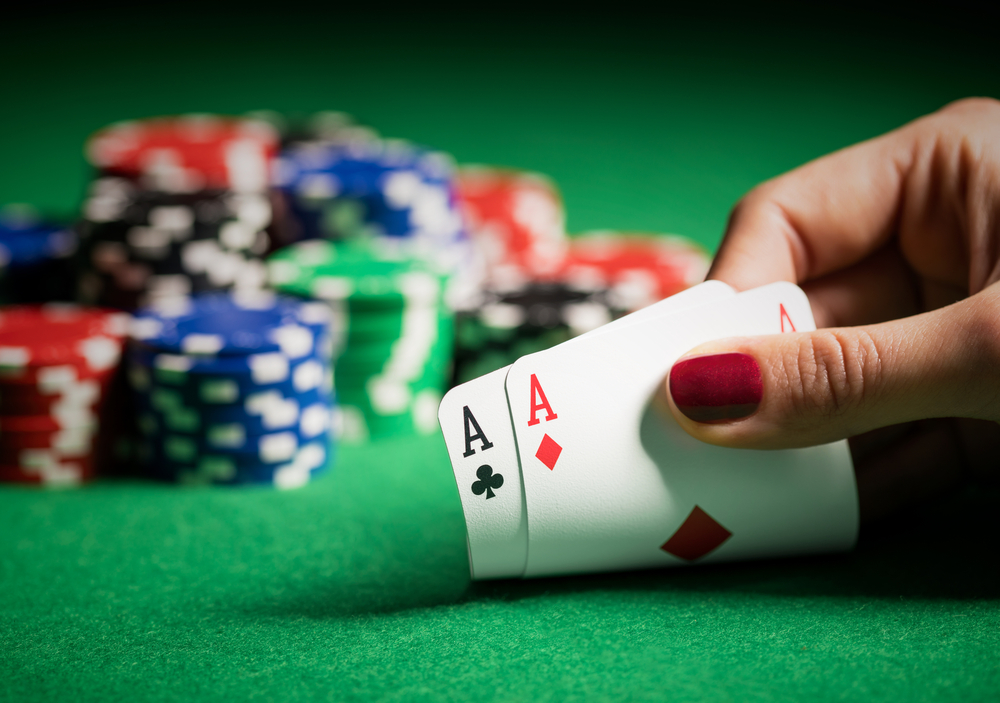
Even novice players know that poker is a game full of as many social nuances as statistical cues. But if you’re just starting out on learning the ins and outs, experts warn that it may not be worth it to bet above your hand.
“Don’t bluff. You’ll probably be playing with beginners, and most of them do not know to fold,” Baptiste Couet, a poker expert, explained in a Quora post. “Instead, bet big with your big hands. Don’t worry: You’ll find someone to call with a worse hand.”
Just be aware that being overly confident can also be a tell when placing your initial bet on a hand. “Never, ever ‘limp’—that is to say to ‘just call’—the big blind when no one has entered the pot yet,” Couet advises. “Why? If you raise with your big hands and limp with your speculative ones, you become easy to read.”
2
Control how much you bet when you’re starting out.

Part of poker’s draw is how thrilling it can be to win big on a bet that initially feels like a stretch. However, experts say one of the most essential elements of the game involves knowing how to budget your chips.
“People analyze how to play hands all day, but often the bigger factor of if you stay in action playing poker is bankroll management,” Wayne Chiang, a professional poker player, explained in a Quora forum.
But how much is too much? Typically, experts say you should aim to limit yourself to a certain amount while you’re starting out. “Your default bet should be half the pot or so when you are learning,” one anonymous poker pro suggests in a Quora forum post. “Later, as you become more proficient, you can experiment with small ball bets and slight over bets. Beginners tend to over bet way too often—such as going all in way over the top—and small ball bets that have no value.”
For more advice, news, and tips, sign up for our daily newsletter!
3
Don’t assume that every hand should be in play.
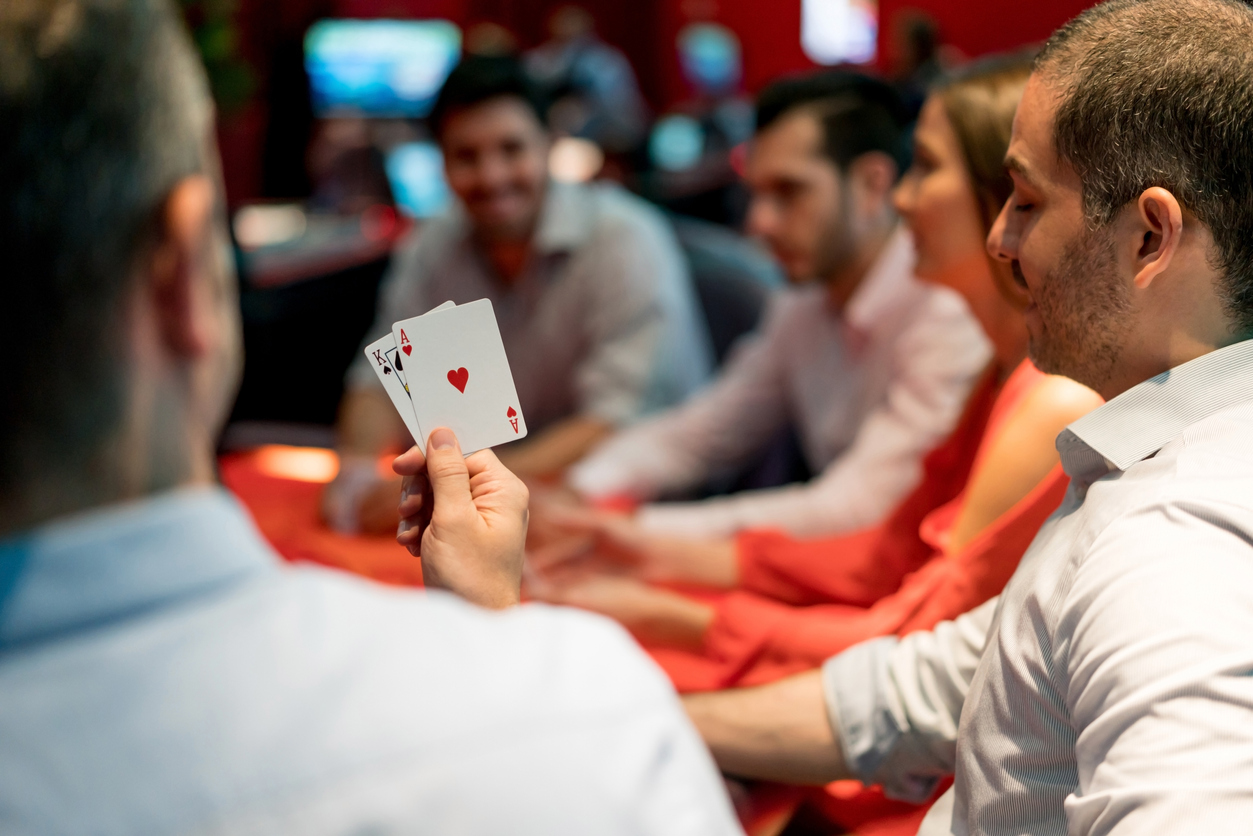
Even people who’ve never played poker casually know the iconic lyrics “know when to hold ’em, know when to fold ’em” by heart. But as standing credit to the immortal words of Kenny Rogers, many experts say that choosing not to ante up on riskier hands can genuinely be essential to staying in the game longer.
“You should play tight. Don’t play junk hands in an early position when you are learning,” one former poker pro posted in a Quora forum. “If you are going to play some junk hands, then do that in late position and in the blinds. You can also play a few extra trash hands when you are very deep stacked relative to the blinds.”
READ THIS NEXT: 7 Tips on Playing the Slots Without Losing It All.
4
Bring the right attitude to the table.
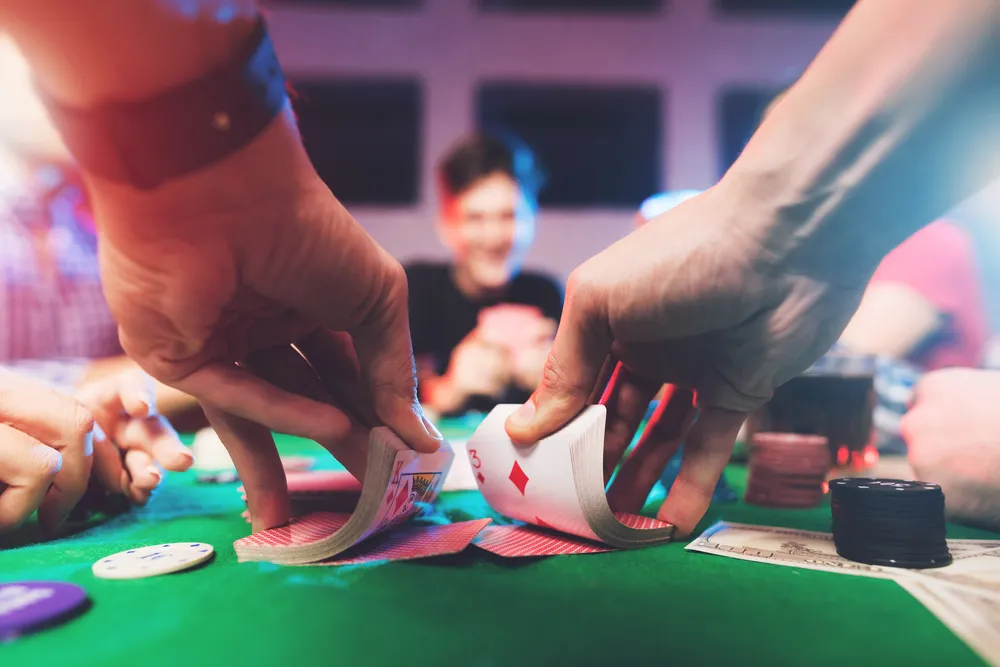
Even in casual situations, there’s usually money at stake when you sit down to play poker. But bringing the right outlook and temperament to the game can be just as important as showing up with your buy-in cash.
“Always be kind and nice to everyone at the table,” Robin Martinelli, a private investigator and former poker pro who’s played in multiple tournaments, tells Best Life. “It can really sour the mood if someone comes in with a bad attitude or takes out their frustrations on people just looking to have a good time.”
“And if you win, always—always—tip the dealer!” she adds.
5
Realize that better players could be targeting you for your chips.
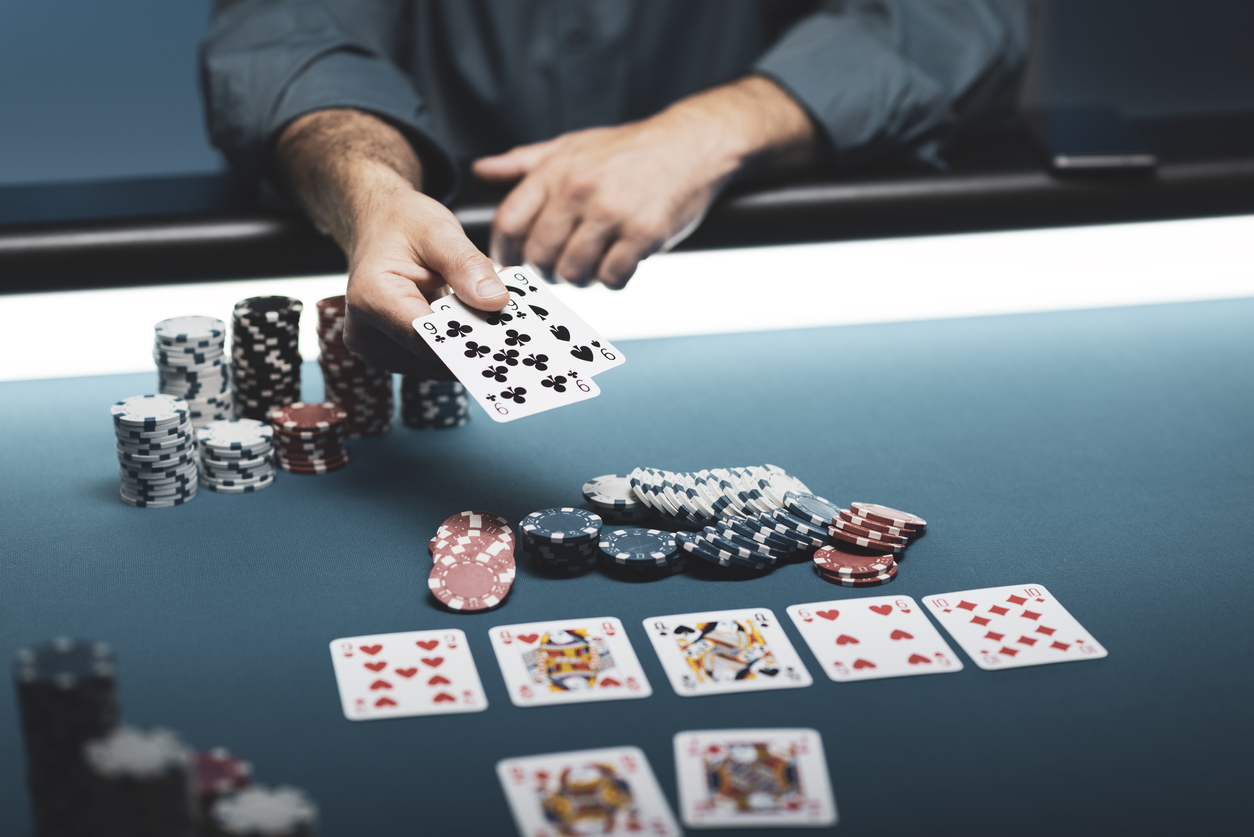
Holding a regular poker game at home among friends can be a fun way to spend an evening. But if you’re seated at a table in a professional setting, you might want to be more guarded against your fellow players.
“Table selection, where there is a choice, is just as important as other poker skills,” Steve Waddington, a poker enthusiast with decades of experience, wrote on a Quora forum. “Finding a table with one or more weak players is always sweet.”
“It is the reason many pros reside in Las Vegas,” he explains. “Tourists go there to play poker, not to fold hands, as good poker requires a lot of the time. I think most pros would agree, a good part of their income comes from those fish.”
6
Keep your impulses and emotions in check.

With all of its highs, lows, and rapid swings between the two, anyone who’s spent enough time playing poker knows that sometimes the most challenging opponent sitting at a table can actually be yourself. That’s why many experts say it’s just as important to understand how to rein in your confidence and check your ego as it is to build a hand.
“Self-control is paramount, as one poor session of tilt can destroy a month’s worth of hard work and disciplined play,” Jake Rake, a poker pro with 19 years of experience, posted on a Quora forum.
And no matter if you have days or decades’ worth of experience, others point out that your skill can always fall victim to the luck of the draw. “Everyone thinks they are much better than they actually are—including you,” Chiang says.